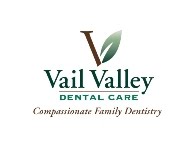Good oral health is a key component of good overall health in children, which is why an early visit to the dentist is very important, says Temple University pediatric dentist Mark Helpin.
"A child should be first seen by a dentist by 12 months of age or within six months of the time that the first tooth emerges into the mouth," said Helpin, acting chair of pediatric dentistry in Temple's Maurice H. Kornberg School of Dentistry.
Helpin says that at such at early age, the dentist's focus will be more on prevention than treatment, including oral hygiene instructions such as how to clean the whole mouth, diet, fluoride, non-nutritional habits such as thumb sucking and injury prevention.
"We're trying to follow the medical model of care for children by preventing disease from occurring before it begins," he said. "What we want is to establish a 'dental home' for the child, as well as their parents, where they can go to get comprehensive and continuous oral health care."
Helpin says during the initial visit the dentist should thoroughly exam the child's teeth and gums, the roof and floor of the mouth and the shape of the developing jaws. He should also discuss proper diet and nutrition and show the parent/guardian how to brush at home. The dentist may also clean the child's teeth - although for younger children, there aren't many to clean.
Helpin says that although some might think that preventive care is less important for primary or baby teeth which eventually fall out, keeping a young child's teeth and mouth clean is imperative in order to control cavity-causing bacteria.
"Cavities are an infectious disease and are the most common, chronic disease during childhood," he said. "It is five times more prevalent in children than asthma. And it is entirely preventable if we begin a program of oral health care early on."
Left untreated, Helpin says cavities can cause an infection that can make a child ill. Left untreated, cavities can also impact the development of the permanent teeth, which are important for aesthetics, chewing and biting, and speech development.
"The permanent tooth is sitting under the primary tooth and if it is exposed to this infection, it can become malformed," he said. "In addition, the baby teeth guide the permanent teeth to where they should go in the mouth."
If a primary tooth needs to be extracted due to infection, the permanent tooth may need assistance from a dentist in finding its proper location in the mouth, says Helpin.
"It's best to keep babies, infants, toddlers and children healthy, and that includes good oral health that starts with an early visit to the dentist," he said.
Source:
Temple University
--------------------------------------------------------------------------------
Article URL: http://www.medicalnewstoday.com/articles/215041.php


No comments:
Post a Comment